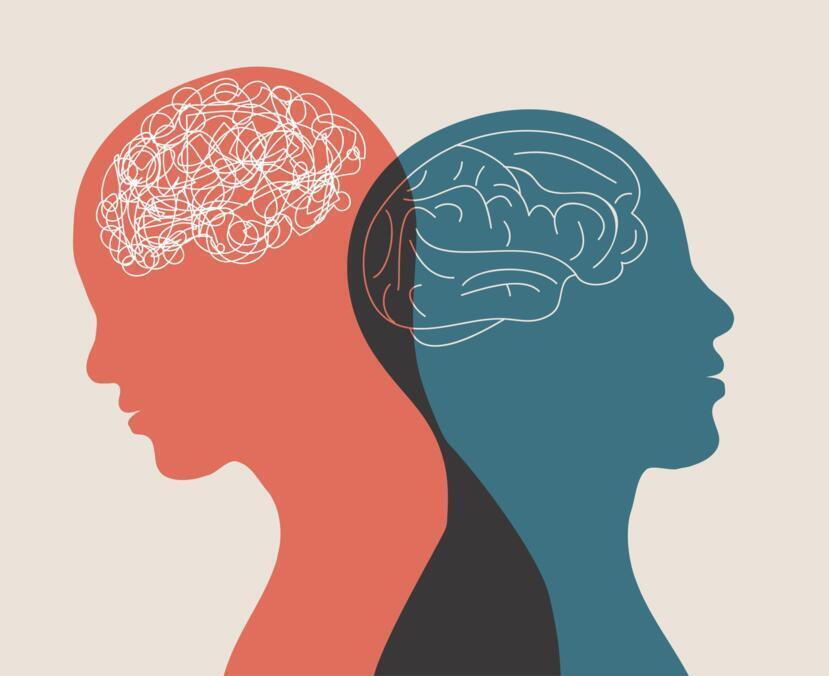
Expert Insights
The Cries for Help: Recognizing Mental Health Struggles in Everyday Life.
As a psychiatric nurse, one of the most challenging aspects of my role is identifying when someone is silently asking for help. Mental health struggles are often hidden behind smiles, laughter, or even anger, making them easy to overlook. The question is—how do we truly recognize those in distress? What should we be looking for? Mental health is deeply intertwined with our society, shaped by genetics, environment, culture, and lifestyle. While some people are predisposed to mental illness due to hereditary factors, others develop mental health conditions due to trauma, stress, or imbalances in their brain chemistry. But no matter the cause, one thing remains clear: too many people suffer in silence. The Impact of Society on Mental Health We often talk about physical health and how diet, exercise, and lifestyle choices affect our well-being. But what about mental health? Could our modern world be contributing to the rise in anxiety, depression, and other mental disorders? The food we eat, the constant exposure to social media, high-pressure work environments, and even the expectations placed upon us by society can all take a toll. Many people feel overwhelmed, yet they push forward, afraid of being labeled as weak if they admit they are struggling. This stigma prevents countless individuals from reaching out, leading to devastating consequences. Nature vs. Nurture: Why Mental Health Is Not Just One Thing For years, there has been debate over whether mental illness is caused by genetics (nature) or environment (nurture). The truth is, it’s both. Some individuals are born with a predisposition to conditions like depression, bipolar disorder, or schizophrenia, but environmental factors—such as trauma, stress, or poor social support—can trigger or worsen these conditions. Think of mental health like a seed. Genetics might plant the seed, but the environment determines whether it will grow into something healthy or something that struggles to survive. A person raised in a nurturing and supportive environment may cope with their predispositions differently than someone who experiences abuse, neglect, or constant stress. Recognizing the Silent Cries for Help Not everyone who is struggling will say it out loud. Some will withdraw, others will mask their pain with humor, and some may lash out in frustration. So, how can we tell when someone needs help? Here are a few signs that someone might be struggling with their mental health: • Sudden changes in behavior – A normally outgoing person becoming distant or uninterested in things they once loved. • Irritability or mood swings – Small things triggering frustration or tears. • Changes in sleep or appetite – Sleeping too much or too little, overeating or losing their appetite. • Increased use of alcohol or substances – Using substances to cope with emotions. • Expressing hopelessness – Comments like “What’s the point?” or “I just don’t care anymore. "As a nurse, I’ve learned that sometimes the biggest red flags are the ones we dismiss as “just a phase” or “just stress.” If someone’s behavior has changed noticeably, it’s worth checking in on them. How Culture Shapes Our View of Mental Health Culture plays a massive role in how we perceive mental illness. In some communities, seeking therapy is encouraged, while in others, it’s seen as unnecessary or even shameful. Many people fear being judged, labeled as “crazy,” or viewed as weak if they admit they are struggling. But mental illness is not a choice, and it is not a character flaw. It is a health condition, just like diabetes or high blood pressure. The more we normalize conversations about mental health, the more people will feel safe reaching out for help. The Role of Chemical Imbalances While external factors play a role, mental health conditions are also linked to imbalances in the brain. Neurotransmitters like serotonin, dopamine, and norepinephrine help regulate mood, and when these chemicals are out of balance, it can lead to depression, anxiety, and other disorders. Medication can help correct these imbalances, but treatment isn’t one-size-fits-all. Some people benefit from therapy, lifestyle changes, or social support. The key is understanding that mental health care is just as important as physical health care. Final Thoughts: Listening Beyond Words Recognizing when someone is struggling requires more than just listening to their words—it requires paying attention to their actions, emotions, and unspoken signals. As healthcare professionals, family members, and friends, we have a responsibility to check in on those around us. If someone seems different, ask how they’re doing. If they brush it off, remind them that you care. Sometimes, just knowing that someone is willing to listen can make all the difference. Mental health is not a luxury—it’s a necessity. And it’s time we start treating it that way……. Tasheye Ranger, RN, LVN/ LPN









